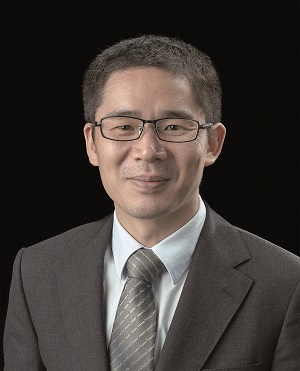Companies around the world have taken steps to comply with the goals of Industry 4.0. In Asia, moving forward may have been slow but considerable resources have been allocated by Asian companies to ride along market trends and improve production efficiency.
To realize the target of Industry 4.0, production processes must be digitized. Digitization is the conversion of pictures, sounds and text or analog information into digital format. Digitization is crucial to data processing and transmission of electronic information. As companies transform their operations toward smart manufacturing, digital solutions become important requirement. A study by PwC indicates that industrial companies expect to invest 5% of revenue on digital solutions in the next five years, with Asia-Pacific companies looking to invest even more at 6% of revenue, according to a report by PwC. Industrial companies globally expect levels of digitization to reach 72% in the next five years with digitization in Asia Pacific companies forecasted to reach 69% in the next five years.
Industrial leaders are digitizing essential functions within their internal vertical value chain, as well as with their horizontal partners along the supply chain. Companies worldwide want to invest approximately 5% of their turnover annually on digitization. In Asia Pacific, respondents indicated spend of approximately 5% of their annual revenue over the last two years and this is set to increase to 6% in the next five years. Based on the survey, globally 5% of turnover corresponds to a total investment of $907 billion. A major focus of these investments will be on digital technologies like sensors or connectivity devices, and on software and applications like manufacturing execution systems. When applying Industry 4.0 solutions, Asia Pacific respondents reflected that they plan to use big data to optimize overall business planning and controlling.
Products and services are now widely available for plastics manufacturing companies wanting to improve their production efficiency and turn out high quality products. Investments into these new technologies and production systems may be high, but Asian plastics manufacturing companies are exploring available solutions to hasten their transition into smart operations.
The pillars of smart factory
Under the name inject 4.0, ENGEL bundles all products, systems and services that make individual injection molding machines as well as the entire production network smarter in the sense of Industry 4.0. With the help of the networking and integration of production systems, the systematic exploitation of process and production data and the use of adaptive production systems, the manufacturing processes in a smart factory continuously optimize themselves. The smart factory is based upon three pillars: smart machines that boost process capability and quality with self-adapting, decentralized systems; smart production to ensure high levels of productivity thanks to horizontal and vertical data integration; and smart services that improve machine availability quickly and efficiently, thanks to close proximity and the use of remote maintenance tools.

Mr. Gero Willmeroth, President Sales &Services, ENGEL Machinery (Shanghai).
For all these areas ENGEL has solutions for plastics manufacturers. Its iQ weight control and iQ clamp control software products that continuously monitor and automatically readjust quality-relevant parameters (smart machines), the ENGEL e-factory Manufacturing Execution System (MES) that is specifically tailored for the requirements of the plastics processor and therefore achieves an extremely high level of vertical data integration all the way down to the level of individual cavities (smart production), and ENGEL e-connect.24 for fast online support and remote maintenance. “The modular concept allows our customers to start with a specific solution adapted to their own requirements at any time and then gradually develop it further. Industry 4.0 will be different for each business and it doesn't always have to be a comprehensive solution. Optimizing manufacturing processes starts with the individual machines and can reach all the way up to a global production network,” according to Gero Willmeroth, President Sales and Services, ENGEL Machinery (Shanghai).
All inject 4.0 products and solutions are available worldwide. “Also in Asia, the issue of Industry 4.0 is clearly more than just a buzzword; it is an important trend among the plastics processors. At CHINAPLAS 2016 already, many trade fair visitors took advantage of the chance to inform themselves at our stand about the possibilities for networking, systematic data utilization and the use of intelligent assistance systems in the context of our inject 4.0 solutions and to discuss their individual challenges and questions. For our customers, and for us as well, Industry 4.0, is both a chance and a challenge. Our goal is to master the challenges together with our customers in order to gain the maximum benefit from the new chances that are arising,” Mr. Willmeroth explains.
Although everyone is talking about Industrie 4.0 in China, the requirements vary greatly from one company to another. “We see ourselves as a partner helping our customers make the most of the opportunities presented by the fourth industrial revolution in the light of their specific needs. Already, a lot of businesses are working with inject 4.0 solutions from ENGEL. Where smart production is concerned, processing firms in China are well on the way to making the smart factory a reality,“ Mr. Willmeroth stated.
ENGEL supplies complete system solutions and sophisticated injection molding applications. Coordinating the injection molding machine, the automation, the process technology and the peripheral units perfectly with each other, and integrating as many process steps as possible from the very beginning enables ENGEL to exploit the system's efficiency potential to the greatest possible extent. “After all, the aim is to achieve maximum quality while keeping unit costs to a minimum. Industry 4.0 is opening up even more opportunities to us here. We are at an early stage and at the moment there still are a lot of questions, uncertainties and also some misunderstandings. But as I said before, the modular concept is a big advantage. Nobody has to implement a comprehensive, complete solution right from the beginning, but can start with a small specific solution and then gradually develop it further at its own pace,” Mr. Willmeroth stressed.
Networking of production along the entire process chain
The KraussMaffei Group with its brands KraussMaffei, KraussMaffei Berstorff, and Netstal promotes the Internet of Things development under the umbrella name Plastics 4.0. The Group also demonstrated its electronic platform (E-Service), which shows how processes between customer and service organization will be optimized in the future.
When a machine urgently needs a spare part, it stops working and fast action is required. This involves identifying the exact part designation and the correct product number, as well as the price, delivery issue and installation requirements. "With the future E-Service of the KraussMaffei Group, processes such as these will soon be able to be processed much more efficiently than before. This facilitates the processing of service cases in day-to-day business and will increase the system availability of our machines,” according to Renzo Davatz, CEO at Netstal and Vice President of Service in the Injection Molding Machinery segment.

Mr. Renzo Davatz, CEO at Netstal
In the future, the user will log in to the E-Service platform. His personal dashboard will offer him a detailed overview of his machine fleet on the start screen. Manuals, service information, and application videos will also be stored here. Additional buttons in the digital dashboard will offer quick access to numerous services, for example to current performance data of the integrated machines, the ticket system, and remote service.
The E-Service portal falls into the category of Interactive Services, which together with Intelligent Machines and Integrated Production form the three subareas of Plastics 4.0. "This fourth industrial (r)evolution will radically change the working world. For instance by the self-optimization of intelligent machines, and thus achieving stable processes,” states Dr. Hans Ulrich Golz, President of Injection Molding Machinery of the KraussMaffei Group. The APC plus (Adaptive Process Control) machine function already provides an indication. Compared with the predecessor version APC, which was successfully launched in 2014, it also offers additional functions and can thus respond even more specifically to process fluctuations triggered by changing ambient conditions, downtimes, or the use of recycled materials. For the first time the APC plus takes into account the specific property patterns of 20 basic materials – such as the melt compressibility – and then takes corrective action in the holding-pressure phase.

Dr. Hans Ulrich Golz President of Injection Molding Machinery, KraussMaffei Group
"Integrated Production" is how the KraussMaffei Group defines this seamless networking of production over the entire process chain. Under the name Plastics 4.0, the KraussMaffei Group bundles its solutions into three categories: Intelligent Machines, Integrated Production, and Interactive Services. Intelligent Machines represents intelligent, self-optimizing machines, which improve productivity and quality. For the Asian market, the response for Plastics 4.0 has been very positive, especially for the new intelligent machine function APC plus.
Process optimization
Long time before the term “Industry 4.0” emerged, SIKORA has already been focusing on the production of measuring and control devices with communication interfaces. Already introduced more than 20 years ago, these were used for remote monitoring and control of the measuring values for process optimization of the production line.
The LASER Series 2000 for online diameter and ovality measurement of hoses and tubes as well as the LUMP 2000 for lump detection on the product surface were the first SIKORA devices that had been equipped with communication interfaces. They were followed by the X-ray based X-RAY 6000 systems that measure in addition to diameter and ovality the wall thickness and eccentricity of hoses and tubes up to 3 layers of different material. “Today, nearly all of our devices that we provide for quality assurance and process optimization in the hose and tube market and the systems that we offer for inspection, analysis and sorting of plastic pellets include a network interface. In the plants, our devices are used for measuring and monitoring product parameters as well as to control the line. An X-RAY 6000 device for example measures hose and tube parameters directly during production. The combined processor system ECOCONTROL 6000 visualizes the measured values and controls them to the minimum values. This is achieved by the connection of our devices with the line control to adapt line speed or extruder rpm,” according to Wanbin Chen, President SIKORA CHINA.

Mr. Wanbin Chen, President SIKORA CHINA
The Chinese government is advancing industrial transformation and is for this reason following the strategy “Made in China 2025”, which is in line and similar to “Industry 4.0”. In this context, manufacturers who put effort in Industry 4.0 will be supported by subsidies or special funds. “Actually, implementing Industry 4.0 constitutes high barriers for many manufacturers as it requires a complete Manufacturing Execution System and Enterprise Resource Planning (ERP), which involves high costs,” Mr. Chen explained.
Caption: Wanbin Chen, President SIKORA CHINA














